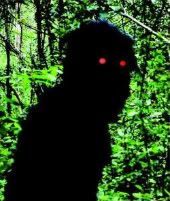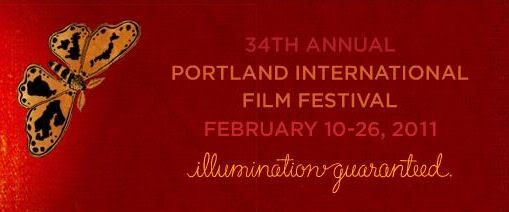 “Facing the jungle, the hills and vales, my past lives as an animal and other beings rise up before me.” Boonmee predicts his death is coming soon and that dying is like giving a presentation. “You’re both excited and scared.”
“Facing the jungle, the hills and vales, my past lives as an animal and other beings rise up before me.” Boonmee predicts his death is coming soon and that dying is like giving a presentation. “You’re both excited and scared.”
At first glance, this is a beautiful film on the many experiences surrounding death. Full of magical realism, fables, and Asian lore, there are many layers and transcendent analogies to explore.
Uncle Boonmee lives in Thailand and is on peritoneal dialysis for kidney disease. The life expectancy can be about five years. It’s an awkward existence where the patient must leach out the poisons from his body through liquid siphoned in and out each day. Any contamination or complication is a death warrant, so careful adherence to sterile procedures is essential.
There are references to karma in this lifetime and Thailand’s political past. At one point, Boonmee laments responsibility for his condition saying, “I’ve killed too many Communists and bugs.” His sister remarks that her father had also been sent into the jungle to hunt men, but hunted animals instead.
The film begins with an interesting vignette of a cow. It is tied up to a tree while its owner and son are preoccupied. As the cow wrestles about the tie drops and the cow is freed. Once he realizes this he exuberantly galumphs through the tall grasses into the jungle. Great cow acting.
However, in the dense jungle he becomes mired in mucky overgrowth, without direction and more restricted than before. When his owner finds him he allows himself to be re-tethered and led back home, seemingly grateful.
You aren’t going to find too many little stories like that in American cinema, so it causes pause and curiosity, as does the rest of the film.
Another little side story reveals a universal but possibly unfounded fear about migrant workers. Boonmee’s sister, who has come from the city to visit him at his farm, asks a character, “Aren’t you afraid of illegal immigrants?” She is answered with, “No, they are more hardworking.”
Early on Boonmee’s sister, son and hired dialysis helper have dinner outside. Coming to join them at the table is Boonmee’s wife (deceased). A little while later his other son (also deceased) enters. He has red lit eyes and looks like a cross between a gorilla and a man. He explains how he went into the jungle and mated with a similar creature.
If I could explain all of this to you, I would. I just wanted to see it because it had such an alluring title. After viewing it I read that it had won the Palm d’Or at the 2010 Cannes Film Festival. Then I began the research.
What I learned is that “Boonmee” is primarily a work of art of infinitesimal layers, from how the film was made, to by whom the film was created, to what inspired and influenced the story to what intended themes are interwoven into the story. There is no part of it this film that doesn’t transcend the literal.
For one thing, this film is simply a part of a bigger artistic installation called “Primitive.” The original book that inspired this particular film segment in a sequence of several was the record of a man named Boonmee who reported to monks that when meditating he could recollect his prior lives. However, Boonmee’s story became intermixed with the filmmaker’s personal story, the region’s culture and artistic expressions on memories, transformation and extinction.
In addition, four different European film companies collaborated with Weerasethakul, the film’s director and writer, each adding their own layers of creativity. Among its list of associate producers is Danny Glover. Diversity enriches.
This film gets pretty deep and complicated, so we’ll stop right there. “Uncle Boonmee” will be absolutely great for those wanting to spend an evening viewing a film they could chat about for the next week, if not a few hours over wine. There is also a bit to discover online, from the culture of the region where the film is set to the kind of filming procedures the filmmakers used to create parallel analogies. Stories within stories.
“Uncle Boonmee Who Can Recall His Past Lives” is playing Feb. 16 and 18 as a part of the 34th Annual Portland International Film Festival. Though the festival’s motto is “Illumination guaranteed,” I’m not sure how much it can possible apply to this film.

FILM CREDITS
Director: Apichatpong Weerasethakul
Writer: Apichatpong Weerasethakul
Stars: Thanapat Saisaymar, Sakda Kaewbuadee and Matthieu Ly
Language: Thai
Release Date: Sept. 1, 2010 (Belgium)
Runtime: 114 min
Award: Palme d’Or at the 2010 Cannes Film Festival.
Portland International Film Festival: http://festivals.nwfilm.org/piff34/
. . .
Follow Bev Questad on Twitter at http://twitter.com/questad.
And don’t forget to “Like” It’s Just Movies on Facebook at
http://www.facebook.com/itsjustmovies.